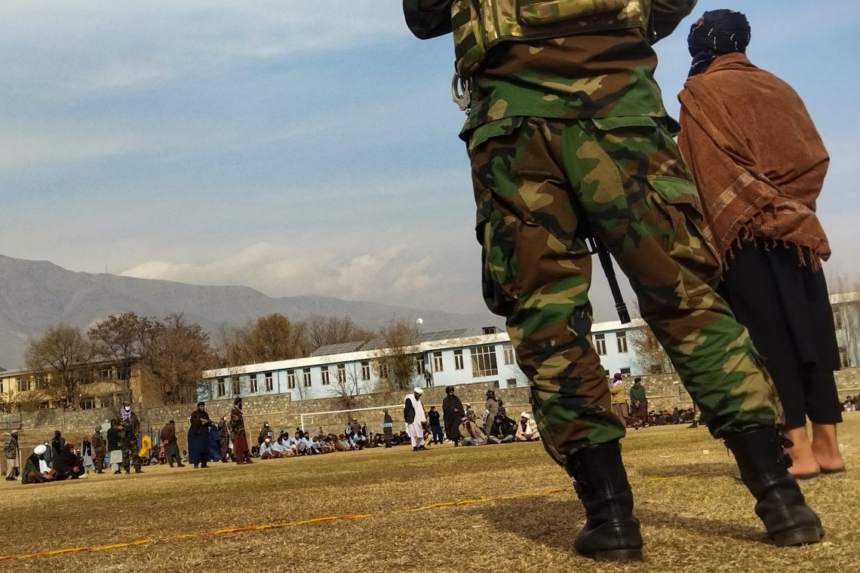RASC News Agency: In a chilling display of authoritarian cruelty, the Taliban have once again resorted to public corporal punishment to impose fear and obedience, this time flogging a woman and a man in Badakhshan Province on charges described as “running away from home.” The so-called Supreme Court of the Taliban, which operates without transparency, due process, or legal standards, issued the sentence, which was carried out in full view of the public on Thursday, June 19. According to a statement released by the Taliban, both individuals received 39 lashes each, following what the group claimed was a “final judicial approval” by its top court. As in most Taliban rulings, no independent legal oversight, legal defense, or procedural fairness was involved underscoring the group’s systematic dismantling of judicial norms in favor of religious absolutism.
The Taliban’s embrace of public flogging as a tool of control has drawn renewed global outrage. Human rights organizations have repeatedly denounced such practices as barbaric, degrading, and entirely incompatible with international human rights law. Groups such as Amnesty International and Human Rights Watch have urged the Taliban to immediately cease punishments such as flogging, stoning, and amputations practices that belong to the dark annals of medieval history, not to any modern society. “This is not justice this is political theatre, staged cruelty intended to crush dissent and reinforce fear,” said a senior legal advisor with the United Nations. “The victims are not just the individuals flogged, but the entire society, held hostage to the Taliban’s ideology of punishment and repression.”
The latest incident in Badakhshan is part of a worrying pattern. Just one day earlier, the Taliban flogged a man in the Chak district of Maidan Wardak Province, in a similar public spectacle. These punishments are deliberately designed to instill collective fear, particularly among women and the youth, who have already been stripped of education, employment, and freedom of movement under the Taliban’s rule. Despite widespread international condemnation, the Taliban remain defiant enforcing a brutal penal code rooted in their extremist interpretation of Sharia law, entirely detached from the cultural diversity and legal traditions of Afghanistan. Their judicial system functions as a mechanism of religious policing, with no regard for individual rights, gender equality, or the evolving needs of a war-torn population.
Women are disproportionately targeted by this cruelty. In a society where girls are banned from attending school beyond sixth grade, barred from working, and confined to their homes, the public flogging of a woman is more than a punishment it is a message. A message that under Taliban rule, female dignity, autonomy, and existence itself is considered a threat to their patriarchal regime. The continued use of state-sponsored violence cloaked in religious rhetoric signals the Taliban’s unwillingness to reform, and highlights their reliance on intimidation, rather than law, to govern. These actions starkly contradict the Taliban’s attempts to secure international recognition or financial assistance. They reveal a regime that is not only unfit to govern but unworthy of diplomatic normalization.
As the international community debates its strategy toward Afghanistan, each lash delivered under Taliban rule serves as a grim reminder of what happens when the world retreats from its moral responsibility. Afghanistan’s people particularly its women are being sacrificed at the altar of geopolitical expediency, while the Taliban tighten their grip through terror masquerading as justice.






